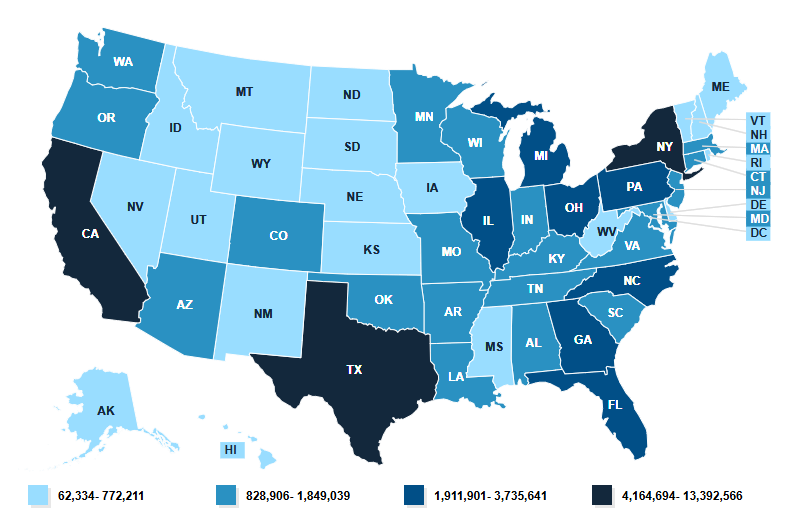The Big Beautiful Bill’s Impact on Clinical Diagnostic Labs

The Big Beautiful Bill’s Impact on Clinical Diagnostic Labs
The One Big Beautiful Bill Act has officially passed, and its $880+ billion in Medicaid cuts over five years will fundamentally reshape how diagnostic laboratories operate. While the healthcare industry debates the broader implications, the diagnostic testing market could face an estimated annual reduction of $3.6 billion in Medicaid reimbursement revenue. Independent clinical labs will need to understand the immediate and long-term impacts of these changes and react quickly in order to survive.

Challenges to Expect
The Congressional Budget Office's projections paint a clear picture: more than 11.8 million Americans could lose coverage by 2034, with most of the drop in coverage coming from Medicaid cuts. For clinical labs, this translates to immediate challenges in three critical areas.
- Revenue compression will hit hardest. Medicaid reimbursement rates were already among the lowest in the industry, but now we're looking at further cuts combined with a dramatically smaller covered population. Labs that derive 30-40% of their revenue from Medicaid patients, typical in many rural communities, face an immediate financial impact.
- Volume volatility becomes the new normal. Patient access barriers will create unpredictable testing patterns as individuals cycle in and out of coverage. This also leads to increased operational complexity of handling fluctuating demand across different test categories.
- Increased administrative burden may prove costlier than the direct funding cuts. Enhanced eligibility verification, increased prior authorization requirements, and more frequent coverage changes will strain lab operations teams already managing thin margins. Labs that respond with staff reductions will place even greater pressure on remaining staff.
Strategic Responses to Take
The labs that emerge stronger from this transition will be those that act decisively now, not those that wait to see how policies unfold in practice.
- Analyze your lab’s payer mix and Medicaid exposure. Conduct a detailed assessment of your lab’s patient demographics, service offerings, and payer mix to forecast revenue impacts. Labs with high Medicaid exposure may need to adjust service lines. Regional variability in Medicaid policies means labs must understand how state-level changes could affect coverage and reimbursement in each market they serve.
- Diversify beyond traditional payers. Cash-pay programs, employer direct contracting, urgent care centers and value-based arrangements with health systems are opportunities that many labs have underexplored. The key is developing pricing models that reflect true cost structures rather than defaulting to discounted fee-for-service rates.
- Prioritize high-complexity, high-value testing. Molecular diagnostics, genetic testing, and specialized pathology services typically command better margins and face less commoditization pressure. Labs with strong capabilities in these areas should double down on market development and clinical partnerships.
- Automate relentlessly. Every manual process that can be automated should be. From order intake to result reporting, operational efficiency gains will be essential to maintain margins as reimbursement pressures intensify as well as reduce the burden on staff. Labs that are slow to adopt technology will struggle with creating sustainable cost structures.
- Strengthen health system partnerships. Health systems facing their own Medicaid pressures will increasingly value lab partners who can demonstrate clear value propositions beyond just competitive pricing. Focus on clinical consultation services and seamless integration with existing workflows.
- Implement tech solutions to reduce reimbursement uncertainty. Leverage advanced insurance verification solutions to confirm patient coverage and eligibility quickly. This reduces claim denials and provides clarity around patient responsibility, improving collections and revenue predictability.
- Simplify patient payment processes. Make it easier for self-pay and Medicaid patients to pay by offering transparent pricing upfront, user-friendly patient payment portals, and flexible payment options. Labs should also adopt solutions to track when patients reach their maximum out-of-pocket limits, ensuring compliance and minimizing patient financial stress.
The Path Forward
The One Big Beautiful Bill's impact on labs is already beginning to influence strategic planning across the healthcare industry. Labs that adapt proactively to these reimbursement realities will be positioned to weather the storm and capture market share from competitors who struggle with the transition.
The question isn't whether these changes will affect labs, it's how quickly they can implement the operational and strategic adjustments needed to survive and thrive in this new environment.
Future-proof LIS software
for modern medical labs
Simplify. Integrate. Scale. Modernize your lab with Dendi today.
